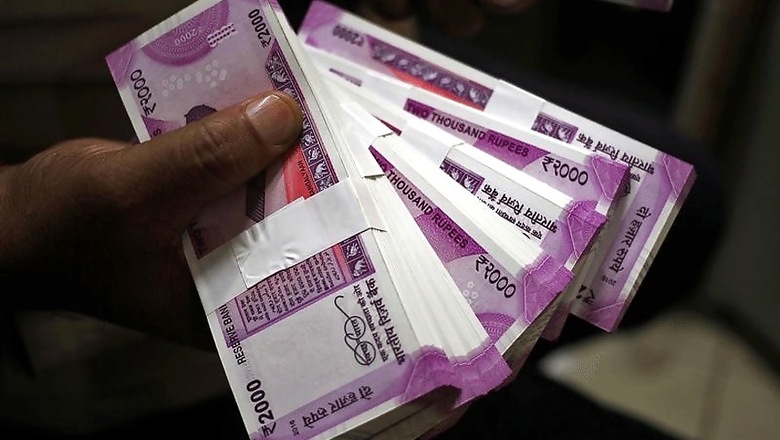
views
Non-banking finance companies (NBFCs) have sought an additional funding window from banks to deal with the stress in liquidity which might arise due to the COVID-19 crisis.
Non-banking finance companies (NBFCs) or shadow banks cater to the MSME, infrastructure and real estate sectors that are impacted the most by the Covid-19 related stress.
In a letter written to the government on behalf of the NBFC sector, industry body Ficci requested a special liquidity line to NBFCs from banks as well as a significant allocation from the Reserve Bank of India's targeted long-term repo auction (TLTRO) operations mandatorily flowing to the sector.
"This could be done in two forms - by giving an additional 10 per cent loan by banks under a special Covid-19 programme and an amount of 10 per cent of total borrowings as refinance against existing listed non-convertible debentures (NCDs) held by the NBFC/housing finance companies also," Ficci suggested in a letter written to the government to help meet funding requirement of NBFCs.
Last week, the RBI had announced to conduct TLTRO of up to Rs 1 lakh crore. Liquidity availed under the scheme by banks has to be deployed in investment grade corporate bonds, commercial paper, and non-convertible debentures over and above the outstanding level of their investments in these bonds as on March 27, 2020.
Banks are required to acquire up to fifty per cent of their incremental holdings of eligible instruments from primary market issuances and the remaining fifty per cent from the secondary market, including from mutual funds and non-banking finance companies.
The industry body also asked for relaxing the classification norms for NPA for NBFCs.
NBFCs will be able to offer the RBI's three-month moratorium on repayments of all term loans falling due between March 1, 2020 and May 31, 2020 to their borrowers only to the extent they are supported by their liability side, Ficci said.
The liabilities profile of an NBFC is about 40-50 per cent from the banking system and the other 50-60 per cent is from other segments like capital markets, retail public lenders, it said.
Since only banks are allowed to provide the moratorium, it will limit NBFCs ability to offer the moratorium to its borrowers.
This shall give birth to large NPAs on the NBFC books, since largely all sectors are affected by Covid-19 either directly or indirectly, it said.
"Hence, the RBI is requested to support the NBFC sector by temporarily amending the NPA definition, such that NPAs would be reckoned if remain past due for 180 days (instead of 90 days past due as is currently the provision). This takes into account the 3-month moratorium window that has in any case been considered by the RBI," the industry body suggested.
Also, the special mention account (SMA) definitions may also be accordingly revised wherein the SMA1 definition be changed from 1-30 days to 1-90 days and SMA2 definition be changed from 31-90 days to 91-180 days to address this situation, it said.
The sector has also requested that the moratorium should be applicable to all delinquent and overdue loans as on February 29, 2020.
It further said the current lockdown has affected businesses as well as individuals significantly and the impact will last beyond three months and may run into a year or more.
"It is therefore proposed that stressed, but 'viable' businesses and individuals be permitted a one-time restructuring without a downgrade in the asset classification," Ficci said.

















Comments
0 comment